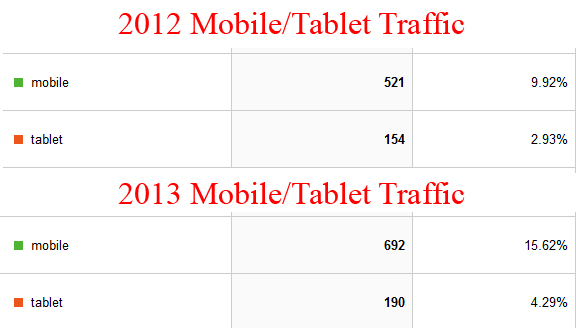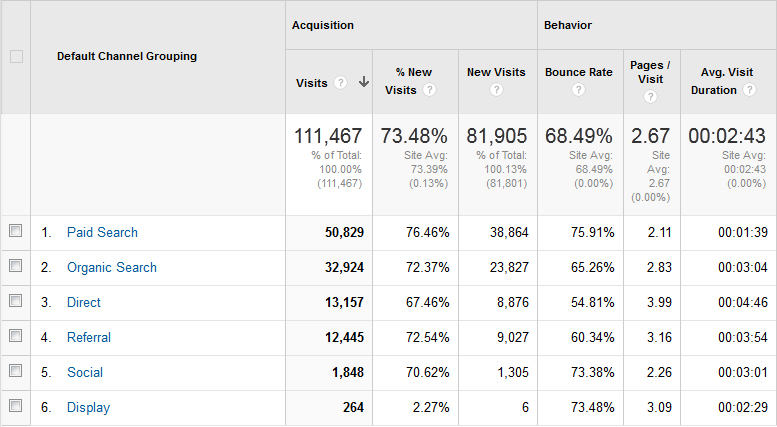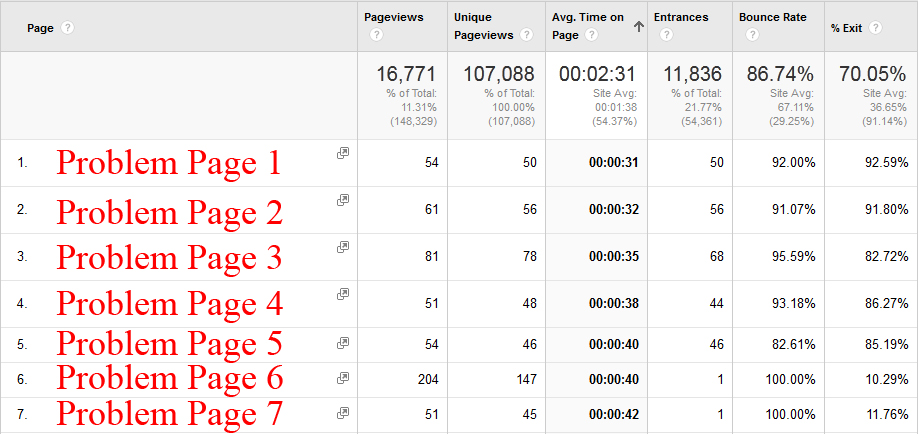Tag: organic SEO

How to Choose the Best SEO Company
March 26, 2021We get it. You are simply looking to improve your rankings in Google and want to pass that responsibility off to the experts in their field.
Before you trust your valuable brand to just any company, we’ve compiled a list of common mistakes business owners make when selecting a digital marketing firm to handle their organic search optimization efforts.

Sharp Team Unveils SEO Reporting Tool 1.0
May 24, 2016Not many web marketing firms can claim they have an in-house search engine optimization tool at their disposal, but now thanks to the forward-thinking SEO crew at Sharp, this has become a reality not only for our SEO team but for our clients as well. (It’s technically still in BETA but we’re letting the cat out of the bag)
Monthly reporting is nothing new to our dozens of SEO clients, in fact it’s the norm, but a tool custom-built for smaller businesses is a bit out of the ordinary, and we’re pleased to be able to offer it. We know our clients and their businesses, and therefore saw a need for a custom tool that offers a statistical presentation of results, trends, figures and more, that overshadows generic reporting.
In many ways our SEO tool simplifies things. Rather than endless lists and tabs of statistics you’re probably very much removed from, our tool focuses a lot of attention on your bread and butter: sessions, conversions, search queries, etc.
What Can Google Analytics Tell You?
January 31, 2014We have been using Google Analytics with our clients for several years, and it is one of the most powerful, no cost tools available. Just about any activity or interaction from visitors on your site can be measured with Google Analytics. In this post, we’ll focus on a few specific features that can help you make adjustments to your website and keep it moving forward.
-
Do I need a mobile website?
Google tracks mobile and tablet views to your website, so if you have seen a steady increase in the percentage of traffic coming from these sources, then it would be safe to say you should explore adding a mobile website or responsive design elements. With the recent “Hummingbird” changes to Google’s rankings algorithm, not having a mobile website will likely cause a drop in your rankings if they haven’t already started doing so. Data for this is available under the “Standard Reports” tab on the left, then “Audience,” “Mobile,” and “Overview.” All you need to do is sort by an appropriate time period. Typically, we advise that a recent, significant increase, or anything over 10%, indicates a site that is a good candidate for a mobile version or a responsive redesign.
-
What are my top traffic sources?
Creating a diverse Internet marketing plan for your website is important to building traffic. Tactics can include an ongoing, organic SEO effort, a pay-per-click campaign, multiple social media pages, and more. Google Analytics can show you which of these efforts is yielding the best results. This data is available under the “Standard Reports” tab on the left, then “Acquisition,” and “Channels.”
-
Do any pages need to be reviewed or updated to improve the user experience?
Your website is built for your customers, and making sure they like what they find on your site is important. Of course, knowing what any given customer will like isn’t easily identified, but looking at site data can give you some clues. Ideally, you are looking for a low bounce rate with a high average time on page (although there are exceptions, such as a contact page, where users are normally getting your phone number and leaving relatively quickly). This bounce rate and time on page data is a fantastic way to see if your content is useful and being read. If it’s not, then you can test out alternatives. This is available under the “Standard Reports” tab on the left, then “Behavior,” “Site Content,” and “All Pages.” You can set up custom filters right above the grey menu bar below the graph by clicking the blue “advanced” bar. In our example, we defined all possible problem pages as anything with 50 page views, a bounce rate over 80%, and an average time on page under 50 seconds.
As we have noted in the above examples, Google Analytics can be an important resource to research and answer many performance-related questions about your website. If you have a question you’d like to ask us about your website, be sure to reach out to our team via our contact page, or send us a message on our social channels. And if you realized you probably need a mobile website (now that you examined the data), we can help with that, as well!



